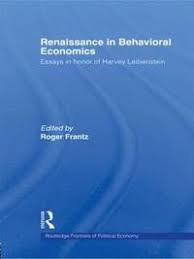

 |

|

The average rating for Two minds based on 2 reviews is 4 stars.
Review # 1 was written on 2015-02-25 00:00:00 Jack Byron Jack ByronAn insightful analysis of the psychological poverty of modern materialism. We have developed a culture that is good at extracting natural resources and building material wealth, but psychological wealth has not kept pace. Wachtel is especialy impressive because although his own views are psychodynamic, he is also able to draw upon other perspectives, both in psychology and economics, to make his case |
Review # 2 was written on 2018-05-29 00:00:00 Scott Anderson Scott AndersonThis is a classic, though still very relevant, description of how the modern American lifestyle fails to give us satisfaction or happiness. Wachtel is a psychologist and he uses this lens to explain the insanity of equating corporate supremacy, high economic growth, material abundance, and increasing working hours to real and lasting human fulfillment. He says, "... only via an identification with some communal purpose, only through participation in a shared set of values and meaning-giving rules and assumptions can the search for fulfillment have any chance of real success." (p. 199). Wachtel considers how Freud, Maslow, and the "invisible hand" of market ideology separate our actual need to build community and shift our way of thinking to a more collective mindset. He, successfully, argues that communism was spoiled by what was actually totalitarianism (as most political science majors already know), and by extension socialism, even if democratically aligned, suffers as well. Instead individualistic thought has remained rooted. 40 years on, these ideas are, sadly, just as relevant. We keep buying stuff, ignoring environmental impacts of waste and pollution, and working long hours, not realizing that some work actually "... detracts from rather than adds to the common good." (p.253). Wachtel argues we should put a priority on leisure, stop focusing on producing so much and concentrate "... instead on the qualities of our experiences and our personal relations and on developing the kind of community that makes that possible." (p. 252) The book sometimes goes a little deep into other author's ideas (in the chapter on narcissism, Wachtel pans Lausch, which I found unnecessary) and makes some comments about environmental degradation and it's impacts (70-90% of cancers caused by environmental factors!), that, though cited, feel sensationalized to make a point. Those two criticisms aside, I really loved this book and it's positive messages for combating our consumer culture in positive and enriching ways. |
CAN'T FIND WHAT YOU'RE LOOKING FOR? CLICK HERE!!!